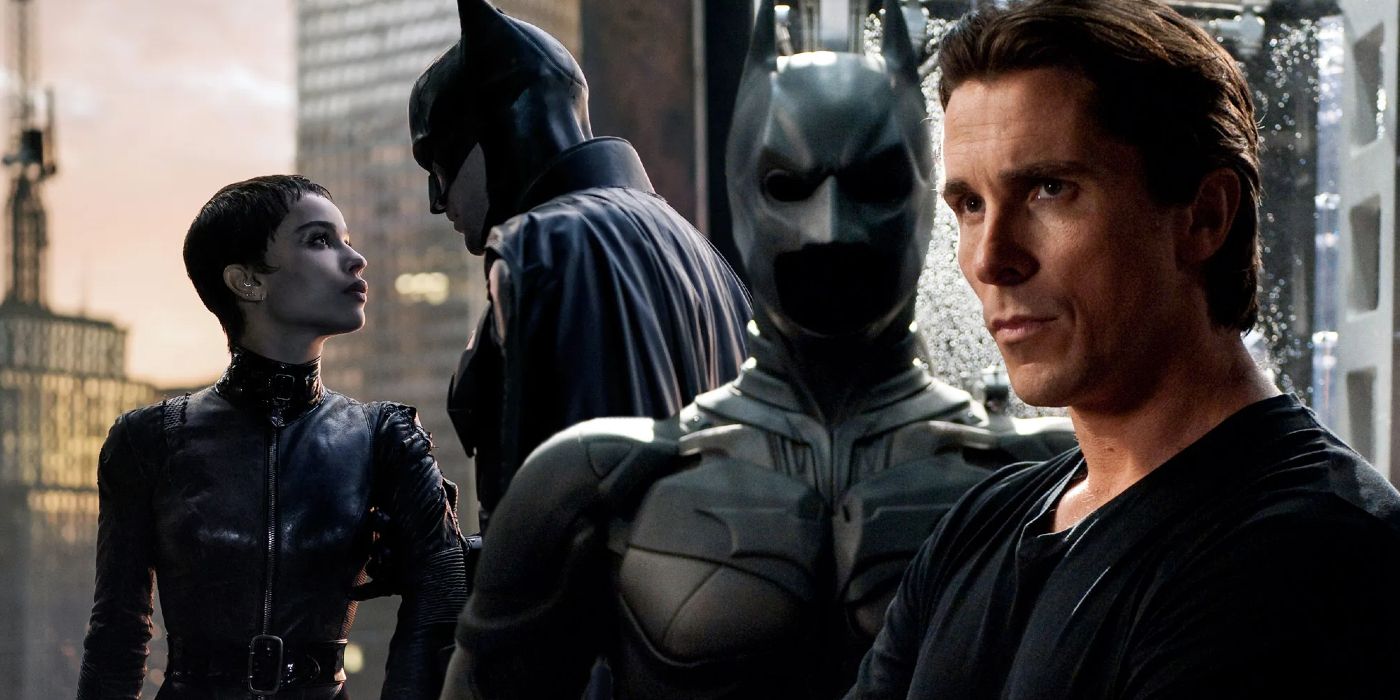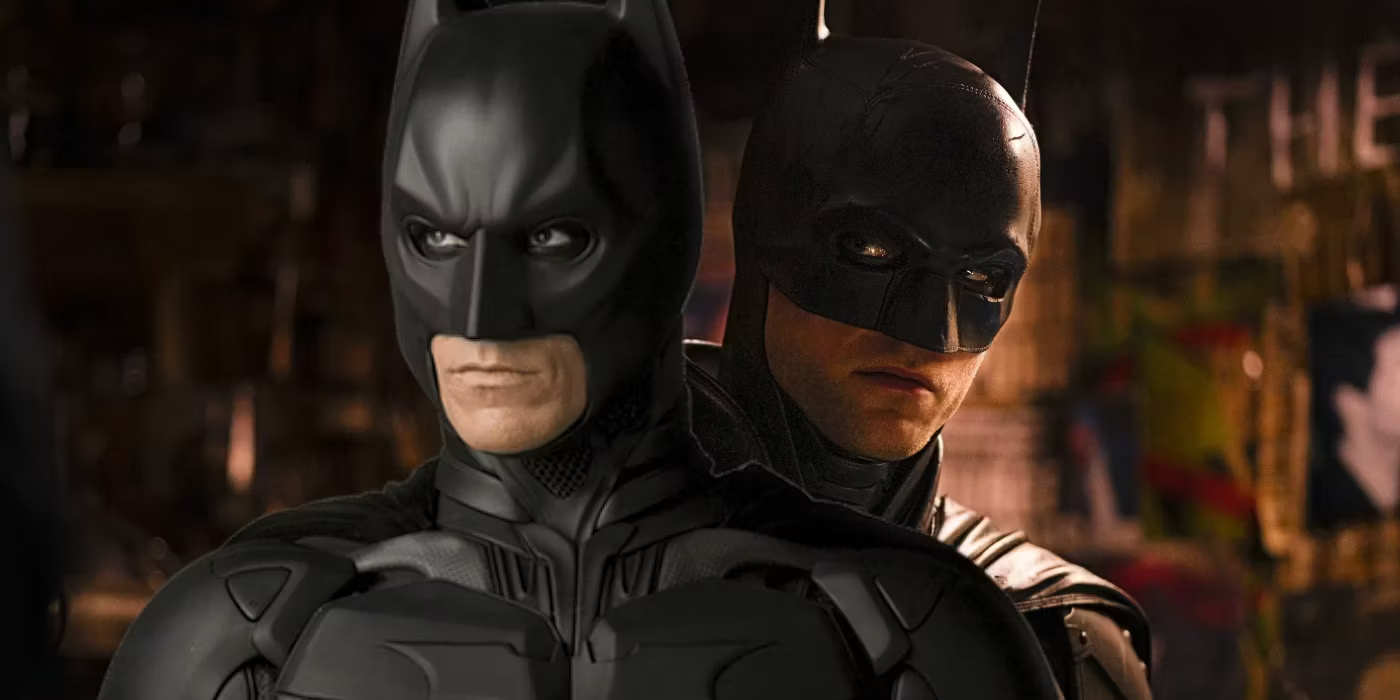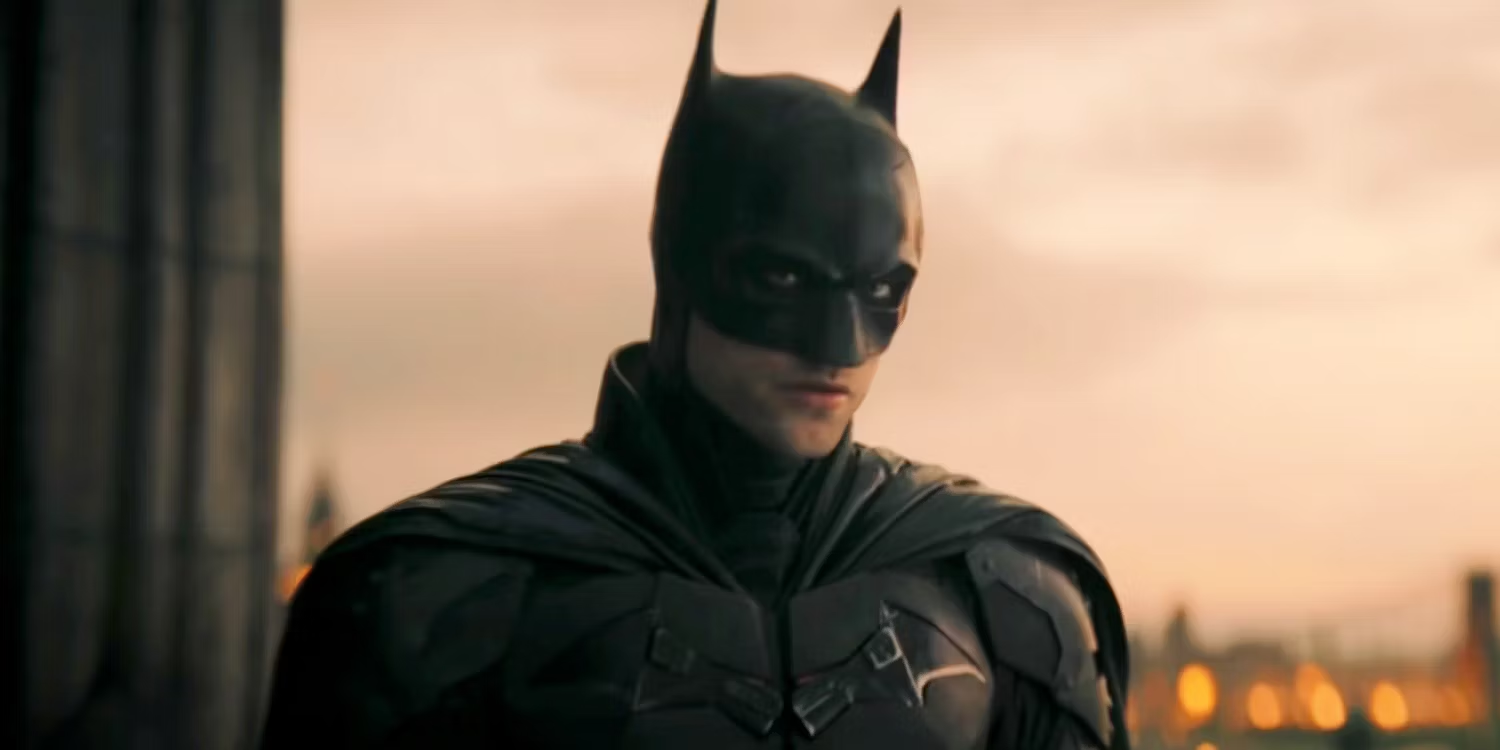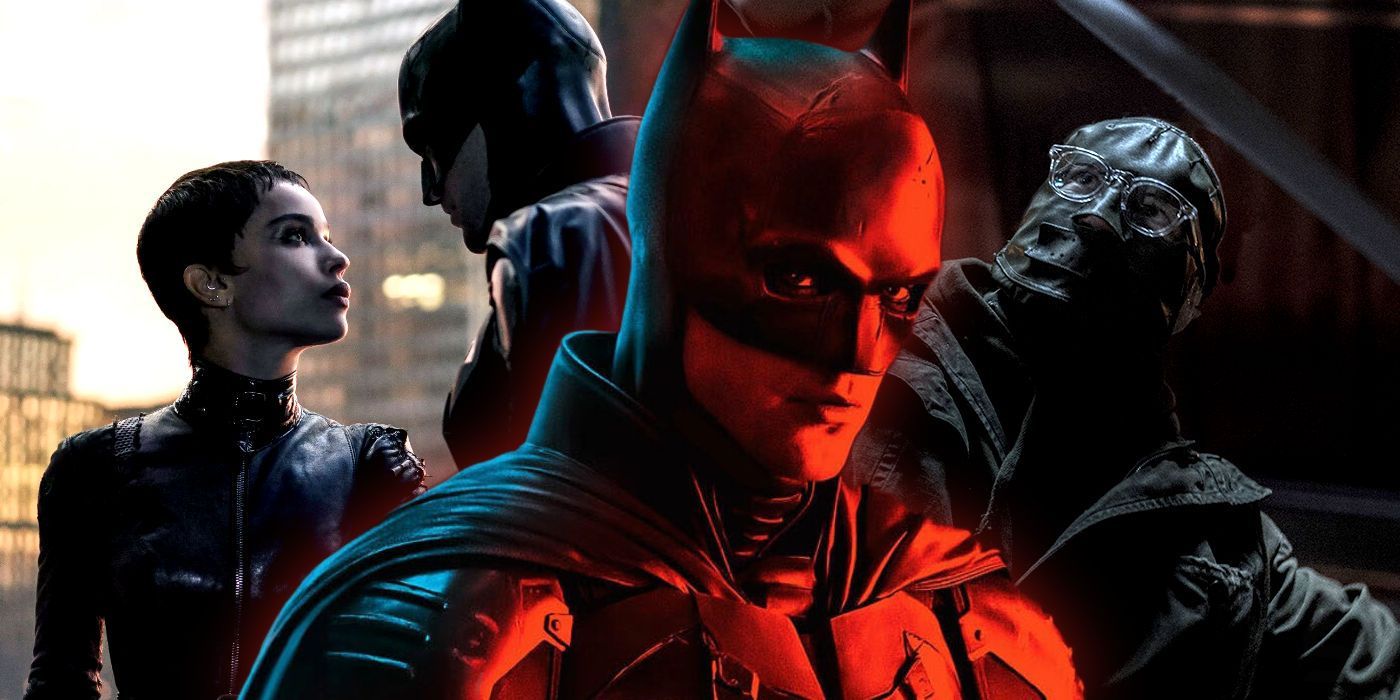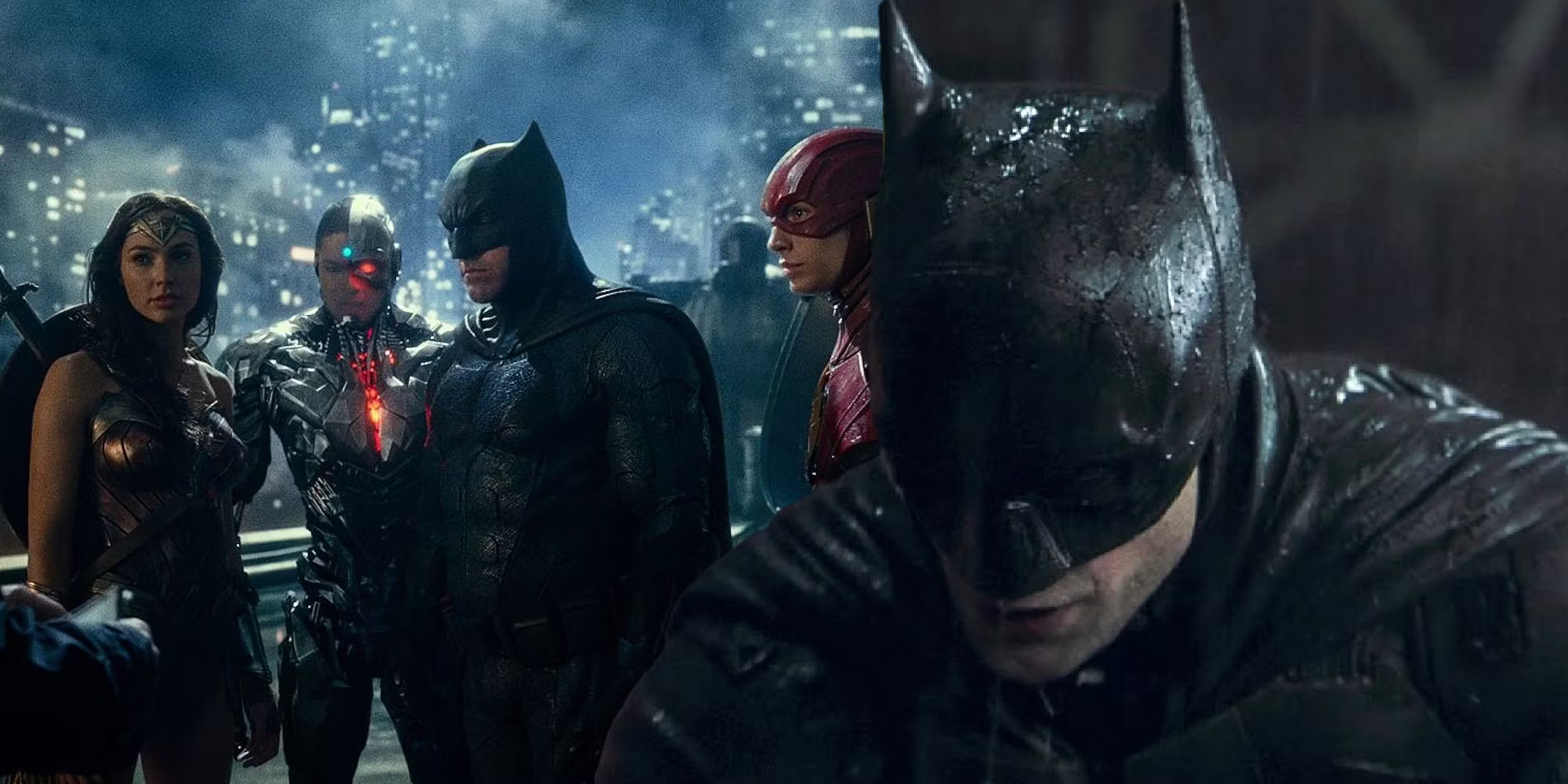Matt Reeves' The Batman delivers a gritty and grounded take on its titular vigilante, but it actually perpetuates a trope that's subtly harmful to the character. After Ben Affleck's solo DCEU Batman movie fell through, its production slowly morphed into that of The Batman, another independent take on the hero starring Robert Pattinson in the title role. Directed by Matt Reeves, The Batman became an interesting noir thriller set in the seedy criminal underworld of Gotham City. Paul Dano, Zoë Kravitz, Colin Farrell, Andy Serkis and Jeffrey Wright all appeared alongside Pattinson to flesh out The Batman's cast as supporting characters from the Batman mythos.
As The Batman exists entirely outside the continuity of other Batman movies, such as those of the DCEU or Christopher Nolan's Dark Knight trilogy, its characterization of its heroes and villains is free from the restraints of continuity imposed by the story of a wider franchise. This allowed The Batman to offer new, fresh takes on its characters: for example, Paul Dano's Riddler is nothing like Jim Carrey's version from Batman Forever. The Batman's general tone captures the most gothic elements of Batman's world, while embracing a gritty realism that makes it feel more noir than any superhero movie usually would.
However, by taking such a realistic approach to its heroes and villains, The Batman actually continues a potentially harmful trend for the Caped Crusader. It's an idea that previous Batman movies have explored, and though it so far seems to be a recipe for success, it has been slowly altering perceptions of the hero in a way that may prove to be problematic. By embracing realism, The Batman undermines the superhero element of Batman's stories, and not only does that risk hurting other versions of the character, but it also limits the stories and characters that can be adapted from Batman's mythos in the film's world.
The Batman Hones One Key Dark Knight Trilogy Trait
A clear inspiration for Matt Reeves' The Batman is Christopher Nolan's Dark Knight trilogy. The defining characteristic of Nolan's Batman movies is their grounded realism, re-imagining elements of Gotham City's heroes and villains in order to make them darker and more believable. Part of the genius of Nolan's Dark Knight trilogy is the plausibility of his characters and the world they inhabit because it allowed the audience to better understand their motivations and connect on an emotional level to their stories.
That grim and gritty nature is something that The Batman emulates, once again delivering a grounded and gritty spin on the Caped Crusader's story. Beyond this, the Gotham that Reeves' movie takes place in is even darker than Christopher Nolan's Gotham City, masterfully honing the realism of the Dark Knight trilogy and distilling it into an even grittier and more gothic take on Batman's world. In doing so, The Batman does more than just perpetuate the idea that Batman's movies should be realistic, it actually doubles down on it. Repeating the idea for another unrelated Batman movie further establishes realism as a key part of the hero's story.
The Batman's Realism Is A Curse As Well As A Blessing
The Batman's popularity seemingly proves how much audiences enjoy realistic Batman movies, but realism and the Dark Knight share a contradictory relationship. Though Batman may not possess traditional superpowers like many other iconic heroes, that doesn't mean that making his movies as realistic as possible doesn't come without complications. Making Robert Pattinson's Batman as realistic as possible might seem like a good way to capitalize on the success of the Dark Knight trilogy while still offering a fresh and interesting take on the iconic vigilante, but it's a double-edged sword. For every way in which injecting Batman with a dose of realism works, there's another way in which it simply doesn't, and sooner or later, this will lead to the idea becoming incredibly tired and overused.
The problem with making Batman realistic is that the character simply isn't the most plausible. The idea of one of the world's wealthiest men using his privilege to fight back against the crime and corruption in his city is a novel one, but it's not one that holds up well under closer inspection. The Batman's Bruce Wayne might just be the most realistic iteration of the dual identity to date, but it doesn't really make sense: if Wayne is a mortal man bound by the same constraints as any other, the idea that he's physically and mentally superior to Gotham's criminals and lucky enough to repeatedly survive lethal encounters without facing long-standing repercussions becomes entirely ludicrous. As such, the idea of making Batman realistic is little more than a myth, and sooner or later, it will start to seem little more than a flimsy gimmick as it continues to test the audience's ability to suspend their disbelief.
Realism Undermines Important Elements Of Batman's Story
Not only does realism in Batman not make much logical sense, it actually undermines key aspects of the character and the world around him. For example, many Batman villains boast origin stories with elements of the supernatural - Ra's al Ghul and his Lazarus pits, Clayface, Solomon Grundy, all of them incorporate ideas that aren't easy to translate into a grittier and more realistic story. Though this can be achieved, it lacks any real longevity: Batman Begins saw Ra's al Ghul killed, but without the magic of the Lazarus pit, the important Batman villain is gone for good.
Introducing realism into Batman movies works to a point, but there are many interesting elements of the Dark Knight's history that are made possible by the intangible and the unrealistic. In removing such narrative devices from the equation, it begins to force Batman movies to tell the same story over and over. What's worse, the inherent realism of the world in question makes repetition seem like a betrayal of that plausibility, making the idea of realistic Batman movies entirely unsustainable.
How Grounded Batman Movies Hurt The DCEU
The final problem with the realism of more grounded Batman movies is that it works against the efforts of the DCEU. DC's attempts to build a shared cinematic universe can be considered divisive at best, and it's possible that realistic Batman movies are partly to blame. The success of Nolan's Dark Knight movies prior to the DCEU is thought to have fueled the unnecessarily gritty tone of the franchise's earlier movies, but they also created a demand for a darker and more believable Batman. Unfortunately, reconciling those ideas against the immense power of heroes like Superman led to the DCEU's controversial Batman v Superman.
Making Batman grounded and believable works in an isolated world, but outside of standalone Batman narratives, the idea falls apart. Having a hero that is by nature so inherently human stand alongside the god-like powers of Superman and Wonder Woman simply doesn't work, and the realism starts to work against Batman. The popularity of grounded takes on the hero like The Batman and Nolan's Dark Knight movies before it only creates more interest in a version of the character that doesn't fit in a shared universe, and that's just one more way that excessive realism hurts Batman's cinematic legacy.

